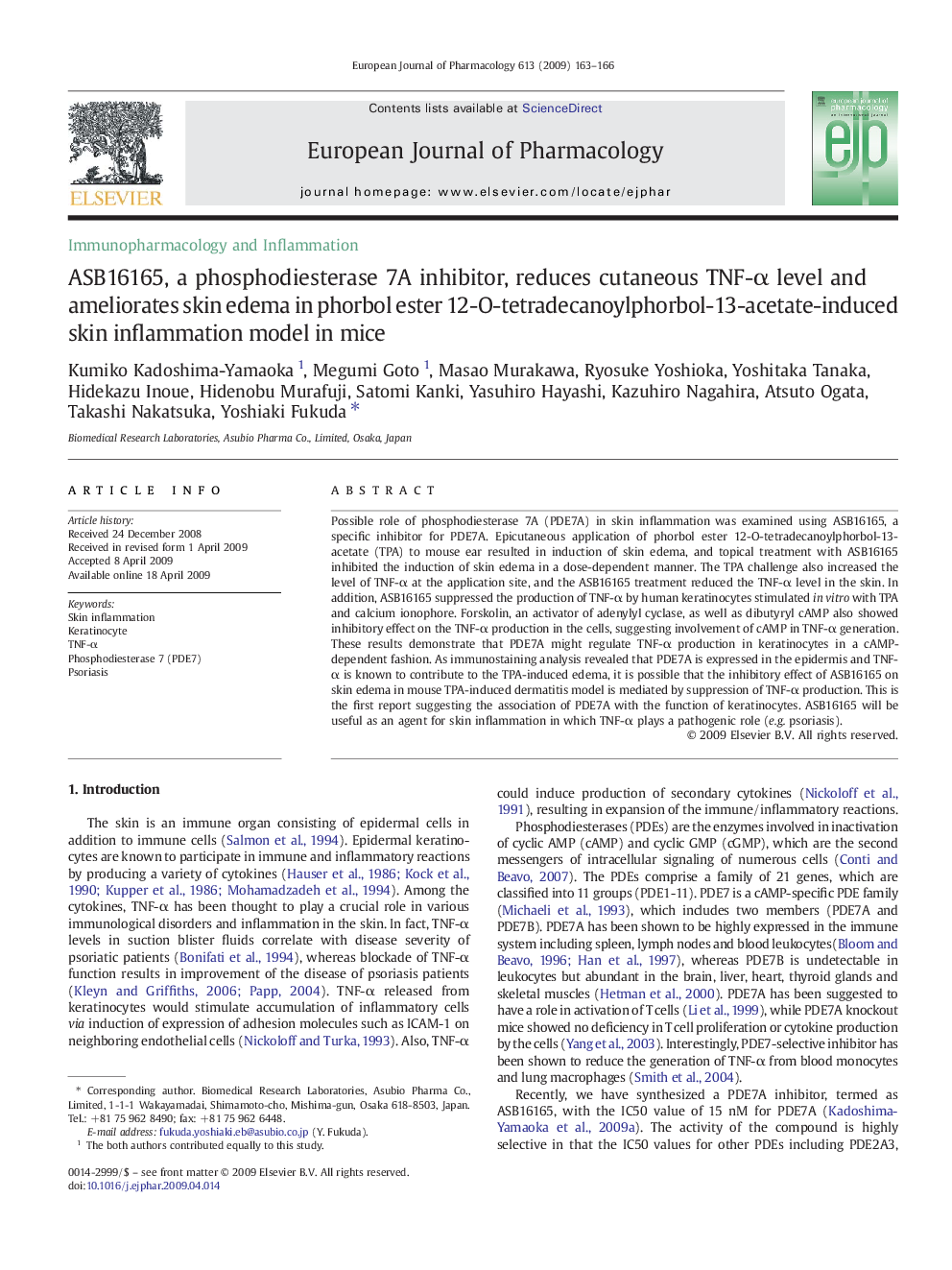| Article ID | Journal | Published Year | Pages | File Type |
|---|---|---|---|---|
| 2534297 | European Journal of Pharmacology | 2009 | 4 Pages |
Possible role of phosphodiesterase 7A (PDE7A) in skin inflammation was examined using ASB16165, a specific inhibitor for PDE7A. Epicutaneous application of phorbol ester 12-O-tetradecanoylphorbol-13-acetate (TPA) to mouse ear resulted in induction of skin edema, and topical treatment with ASB16165 inhibited the induction of skin edema in a dose-dependent manner. The TPA challenge also increased the level of TNF-α at the application site, and the ASB16165 treatment reduced the TNF-α level in the skin. In addition, ASB16165 suppressed the production of TNF-α by human keratinocytes stimulated in vitro with TPA and calcium ionophore. Forskolin, an activator of adenylyl cyclase, as well as dibutyryl cAMP also showed inhibitory effect on the TNF-α production in the cells, suggesting involvement of cAMP in TNF-α generation. These results demonstrate that PDE7A might regulate TNF-α production in keratinocytes in a cAMP-dependent fashion. As immunostaining analysis revealed that PDE7A is expressed in the epidermis and TNF-α is known to contribute to the TPA-induced edema, it is possible that the inhibitory effect of ASB16165 on skin edema in mouse TPA-induced dermatitis model is mediated by suppression of TNF-α production. This is the first report suggesting the association of PDE7A with the function of keratinocytes. ASB16165 will be useful as an agent for skin inflammation in which TNF-α plays a pathogenic role (e.g. psoriasis).
